|
'Journey's End' by Alfred Noyes Know'st thou where that kingdom lies? Take no lanthorn in thy hand. Search not the unfathomed skies. Journey not o'er sea and land. Grope no more to east or west. Heaven is locked within thy breast. Splendours of the sun grow dim, Stars are darkened by that light. Thoughts that burn like seraphim Throng thine inner world to-night. Set thy heel on Death and find Love, new-born, within thy mind. In that kingdom folded lie All that eyes believe they see; All the hues of earth and sky, Time, space, and eternity. Seek no more in realms apart. Heaven is folded in thy heart. Firmin Baes (1874–1943) was a Belgian artist.
Alfred Noyes (1880–1958) was an English poet.
0 Comments
After clicking 'Play', please wait a few moments for the podcast to load. You can also listen on Spotify, Apple, Google, Podomatic, Player FM and Deezer. Listen to other Forecasts here. Greg Jordan describes the diverse experiences that playing the guitar has given him, from gigging in clubs in Oxford and London, England, to touring internationally with a US military band, to playing in a worship band in Florida, where he now lives -- and even to connecting with people to whom he gives COVID-19 jabs. Host: Will Shine You can listen to Greg playing the guitar and Will playing the drums by visiting the below links to worship services led by Hyde Park United Methodist Church: - Online Worship - March 28, 2021 - YouTube (Starts at 4:20) - Worship - July 26, 2020 - YouTube (Starts at 8:14) Below are excerpts from today's Forecast. This transcript has been lightly edited for clarity and concision. 'I see you' We were not there to preach, but I'd always say 'God bless you' to someone, regardless of what country and what their religion is. Everyone says in one form or another, 'God bless you', however they say it. That's me saying to this person, 'I see you.' There's a word I learned in the Methodist church here, 'Sawubona', a South African phrase. It literally says, 'I see you'. That's the literal translation. But it also means 'I recognise you' and 'I appreciate you'. So it says those three things in that one phrase...It's just one of those things when you let people know you see them, you recognise them, regardless of what their station of life is. Because when I began, I was just some kid from Miami. And here I am playing in front of thousands of people in the audience. I learned in the military: no job is too small. I don't have so much rank that I can't sweep the floor. You know what happens? You find that you meet people where they are, and you learn so much about this person. This person is a custodian, but they may be also be an artist, a guitar player. They may play the harmonica or saxophone or be a great singer. You wouldn't know this if you didn't allow yourself to go into their space and meet them where they are. On blessing fellow veterans While I was working for the Department of Veterans' Affairs, I learned to read medical records and go through their veterans' files and help them resolve their medical claims. I saw another side of what happens to military people through their careers--I've had some bumps and scrapes personally myself, physical injuries and things--that now the VA's helping resolve and take care of. I'd get the opportunity to help these other veterans resolve their medical claims, which is rewarding... Rarely did I have an opportunity to speak to a vet on the phone, but when you do, I made it my personal goal to always say, regardless of our conversation, 'God bless you, and I hope you find success in this' because I truly meant that. For many of the veterans I was able to help, it may be the first time since they were on active duty that someone explained to them, 'I hope you find success.' On administering COVID-19 vaccines Not to toot my own horn, but I've had an impact on [hundreds of] people's lives. Such an intimate thing as putting a needle in someone's arm...Again, I got great training. The folks who hired me, we all worked as a team, just as I learned in the military of how teamwork goes, and I happened to be the oldest person on this team. Lately, in my life, I'm always the oldest one, right? I had a great time doing it, and I worked with people who had done this before. They knew what they were doing. So even though I'm the oldest, I'm not the most experienced. Again, grace. These folks allowed me to be the guy with the least amount of experience and they allowed me to get in there and just jump in and have a trial by fire. 'Do these injections. You've been training. You know how to do this. Don't be afraid to put the needle in and push the plunger.'... I can't tell you how many hugs I've got. We're talking about COVID--you're not supposed to hug. But people would get an injection, and many of them were so grateful to have these injections. People of all ages, races, every group you could think of. So that was a rewarding thing. Some of the people, since I've been living here for about fifteen years--they've seen me play music. Some of the people have even seen me in Hyde Park, where, since COVID, we've been doing videos. Some people have seen the videos and say, 'You look familiar.' So I've made some acquaintances that way. Some people may see you on the internet, and all of a sudden, they come into the doctor's office, and we all have masks on, and they say, 'You look familiar', even though they can only see half of your face...And that's how it unfolds. In the midst of giving these injections, we form these really brief relationships...After you get an injection, there's an observation period of fifteen and, in some cases, thirty minutes. So in that period of time, when their time is up, they're free to leave. But they always come by and say 'Thanks for the injection.' And I have to say 'Thanks for coming in.'... And I'm not done yet, just being around people. I always say 'God bless you' to people. Greg Jordan is a guitar player, a US Air Force veteran, an administrator of COVID-19 vaccines and an avid fisherman. He lives in Florida.
Will Shine is a co-host of Forecast. 'The Elixir' by George Herbert Teach me, my God and King, In all things thee to see, And what I do in any thing, To do it as for thee: Not rudely, as a beast, To runne into an action; But still to make thee prepossest, And give it his perfection. A man that looks on glasse, On it may stay his eye; Or if he pleaseth, through it passe, And then the heav’n espie. All may of thee partake: Nothing can be so mean, Which with his tincture (for thy sake) Will not grow bright and clean. A servant with this clause Makes drudgerie divine: Who sweeps a room, as for thy laws, Makes that and th’ action fine. This is the famous stone That turneth all to gold: For that which God doth touch and own Cannot for lesse be told. Johannes Vermeer (1632–1675) was a Dutch painter.
George Herbert (1593–1633) was a Welsh poet and an Anglican priest. Doreen Nyamwija shares lessons learned through working at the Iona Centres, Scotland Iona is a very special place, but we all know it is the people who make the place even more special. It amazes me how wonderful people are; I have learned so much from being on Iona. Sometimes you think, 'Well, I have been here for a few years now', but every single day is a new opportunity for learning. With different tourists, new staff and new guests every week, there is so much to learn and hold onto. This year, I have worked with one of the most amazing people I have ever met (to date of course) and one amongst many. It was not always easy but a learning curve. As soon as the first group of volunteers arrived, I learnt that one of them had Asperger's syndrome. I did not know much about what this meant, but he was amazing. He told me everything I needed to know about his experience of living with the condition. One day, when we were both working, he told me how he liked things done in a certain way and that routine and order were very important to him. I understood this and made sure he always had proper instructions. I also told him to ask me as many questions as he needed to whenever he did not understand something. Later, he upset some volunteers who could not understand why he always wanted things done his way, sometimes changing around things if they were not done quite the way he wanted. I understood him and understood them but did not know how to make sure they understood and got on with each other. I tried to explain to the other volunteers, and I tried to explain to him. I used examples that I thought would be quite simple to understand, saying, 'When you are walking in a group, as we do on a [weekly] pilgrimage, some people are used to walking very fast, others not as fast, but when it is supposed to be a walk for the whole group, both parties must make an effort to get to a compromise so that they are not too slow or too fast!' I also said, 'Because we are a team, sometimes someone else may set the beakers in different colours when you would prefer them to match. When this is done, do not change them, but when you are the one setting the table, next time, you can match them as you would like. For teamwork to happen, there has to be compromise. We sometimes have to let people do what they like, even when it is not what we would prefer.' I was not sure whether any of this would actually work, but surprisingly, it did, and by the end of our time together, we had built a team. It was not that they started liking what the others were doing, but there was a higher level of acceptance and compromise. The biggest learning curve for me and the other volunteers came when it was time to say goodbye to the volunteer with Asperger's syndrome. He told us how we had given him a chance to work with us despite the differences and difficulties he felt that he had caused. He said that he had not often had opportunities to do this and that this had been the best part of his life. Doreen Nyamwija holds a business degree in entrepreneurship and for four years worked as the head housekeeper for the MacLeod Centre on the Isle of Iona, Scotland. She has established a charity providing accessible toilets for schools across Uganda, and she is currently working to build an accessible bed and breakfast for locals and visitors in Uganda, where she lives with her husband and their two children. To find out more about her B&B project and how to support it, visit the website here or email her at [email protected].
This piece is an excerpt from Doreen's book Never Give Up: My Life Story from Uganda to Iona (Cloister House Press, 2017). Doreen's piece 'Servant Leadership in Community' was published on Foreshadow in May 2021. 'The Lights of Home' by Alfred Noyes Pilot, how far from home?-- Not far, not far to-night, A flight of spray, a sea-bird's flight, A flight of tossing foam, And then the lights of home!-- And, yet again, how far? And seems the way so brief? Those lights beyond the roaring reef Were lights of moon and star, Far, far, none knows how far! Pilot, how far from home?-- The great stars pass away Before Him as a flight of spray, Moons as a flight of foam! I see the lights of home. Robert Salmon (1775–1845) was an English and American maritime artist.
Alfred Noyes (1880–1958) was an English poet. After clicking 'Play', please wait a few moments for the podcast to load. You can also listen on Spotify, Apple, Google, Podomatic, Player FM and Deezer. Listen to other Forecasts here. Jesus said, 'Blessed are the meek, for they will inherit the earth.' But in a culture that prizes strength and often overlooks meekness (or gentleness), what is the value of gentleness? This Forecast is an arrangement of writing, music and conversation, some of which have been published on Foreshadow and some elsewhere, connected by their witness to the strength of gentleness. Outline of today's Forecast, including links
Below is an excerpt from the clip with Scott Stevens featured in today's Forecast. It has been lightly edited for clarity and concision. When you suffer from the symptoms of Parkinson’s – the shaking of your limbs, of your digits, your head, your feet, your hand – that’s a fairly fragile and vulnerable thing to experience…When I was thinking about the shakes in terms of music, I started thinking that this needs to be a story that’s very vulnerable and offers some very thin and fragile sounds. Jared, at the very start, said, ‘Scott, I need you to think broken instruments, discarded instruments' – which isn’t to say I broke a piano and lit a guitar on fire or anything – but trying to feature very fragile sounds… Dan’s life followed that arc in a very interesting way in that, as his body became more frail, as it became more susceptible to all kinds of things – even though some might look at that as a decrescendo, the twilight of his life, on his way out, getting quieter – the intentionality with which he lived his life became much more focused, and the things he accomplished – helping establish an orphanage in Rwanda and trying to make reparations, reconciliations with people, trying to be more soft-hearted than he’d been – to me it felt much more like a crescendo, like even as your body’s growing more and more weak, the force and faith and intentionality of your life is growing. Scott Stevens is a composer whose versatility stems from eclectic influences. His music is featured in multiple independent film scores as well as ads for Toyota, Saatchi & Saatchi and Red Bull, among others. Scott holds a Bachelor’s degree in Music Composition from Point Loma Nazarene University and a Master’s degree in Global Music Composition from San Diego State University.
Scott's other work on Foreshadow: Dawn Will Prevail (Music, December 2020) Perspective (Music, January 2021) Listening Inwardly (Interview, April 2021) Josh Seligman is the founding editor of Foreshadow. 'Indifference' by G. A. Studdert-Kennedy When Jesus came to Golgotha they hanged Him on a tree, They drave great nails through hands and feet, and made a Calvary; They crowned Him with a crown of thorns, red were His wounds and deep, For those were crude and cruel days, the human flesh was cheap. When Jesus came to Birmingham, they simply passed Him by, They never hurt a hair of Him, they only let Him die; For men had grown more tender, and they would not give Him pain, They only just passed down the street, and left Him in the rain. Still Jesus cried, 'Forgive them, for they know not what they do,' And still it rained the winter rain that drenched Him through and through; The crowds went home and left the streets without a soul to see, And Jesus crouched against a wall and cried for Calvary. G. A. Studdert-Kennedy (1883–1929) was an Anglican priest and an English poet.
Fritz Eichenberg (1901–1990) was a German-American illustrator. By Patty Willis Be with me! Fill my heart with your transfiguring love that can turn death into life illness to wholeness hatred to loving kindness my sad heart into a pumping station in the desert invisible until sedans of travelers crown the hill. They work in silence as if speaking would disturb the spell, the heavy, hot air of a summer night-- the neon sign that flashes like an answer to prayers. The car wash free to customers draining away the layer of silt into the roadside ditches of spiny asparagus, feeding the watercress and giving travelers ease. They ride off ready for the next leg--promising themselves to pay attention--windows down harsh air turned into shelter. Rev. Patty Willis is a minister, writer, artist and translator based in Arizona (US). She has also been active in immigration justice and reconciliation between white settler descendants and indigenous people.
'Pumping Station in the Desert' is part of a series entitled 'Psalms at Finisterre', which Patty began writing six years ago when she was mourning the loss of her parents in a car accident. 'One by One' by Adelaide Anne Proctor One by one the sands are flowing, One by one the moments fall: Some are coming, some are going; Do not strive to grasp them all. One by one thy duties wait thee; Let thy whole strength go to each; Let no future dreams elate thee; Learn thou first what these can teach. One by one,—bright gifts of heaven,-- Joys are sent thee here below; Take them readily when given; Ready be to let them go. One by one thy griefs shall meet thee; Do not fear an armed band; One will fade as others greet thee,-- Shadows passing through the land. Every hour that fleets so slowly Has its task to do our bear: Luminous the crown and holy, When each gem is set with care. Hours are golden links, God's token Reaching heaven; but one by one Take them, lest the chain be broken Ere the pilgrimage be done. Adelaide Anne Procter (1825–1864) was an English poet and philanthropist.
|
Categories
All
ForecastSupport UsArchives
July 2024
|
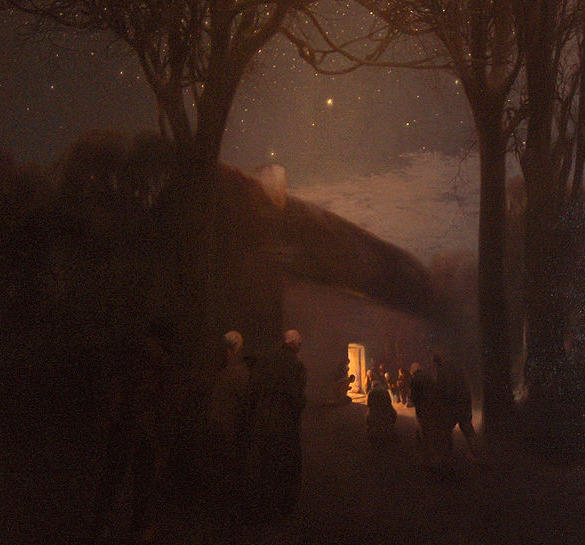
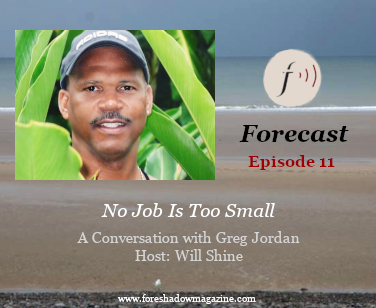
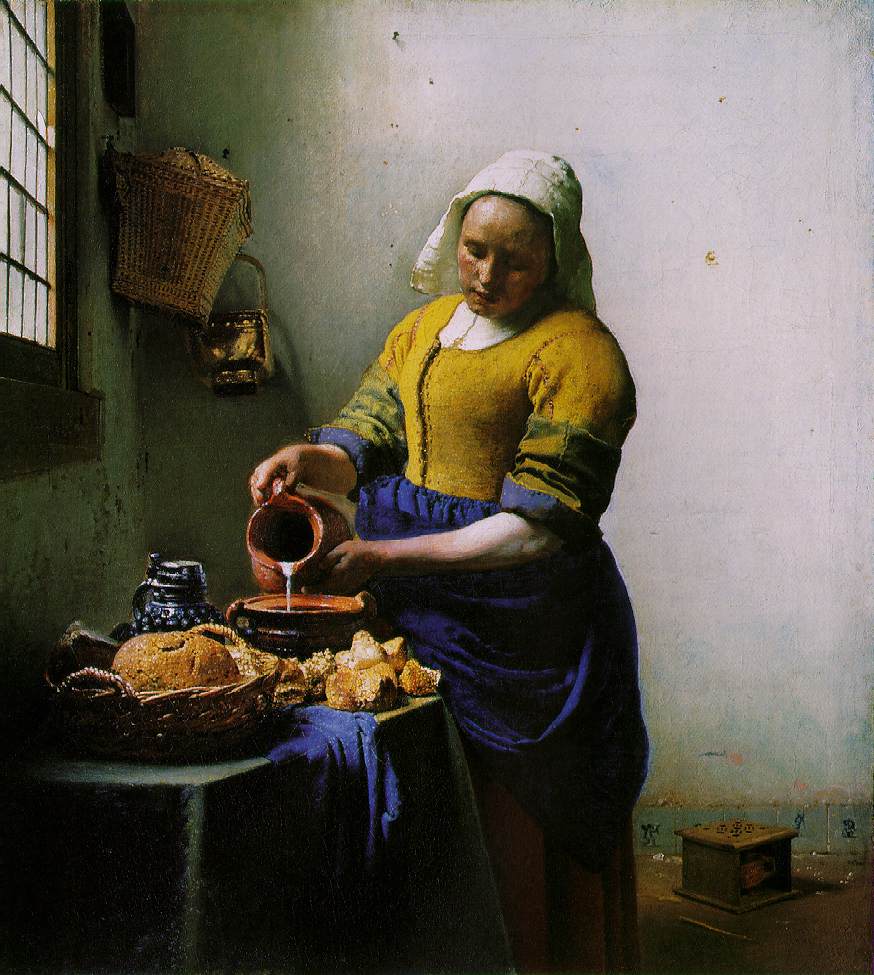
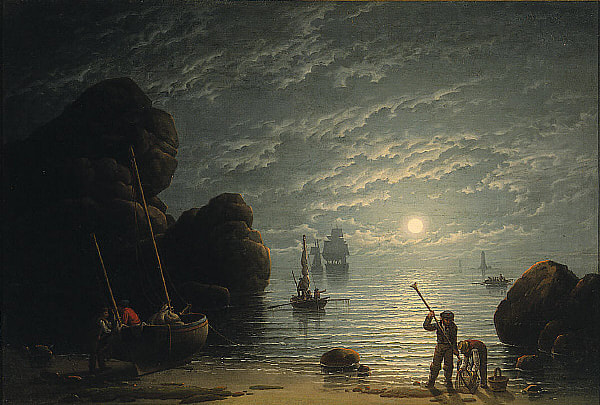
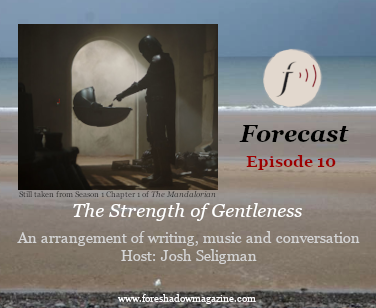
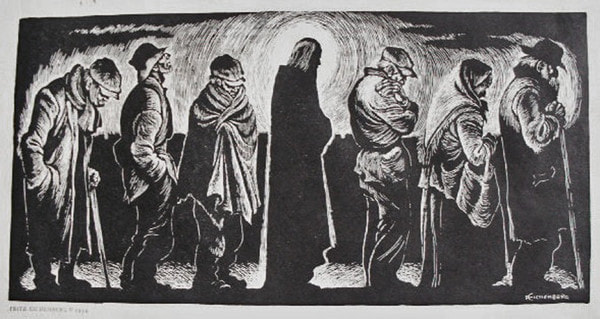
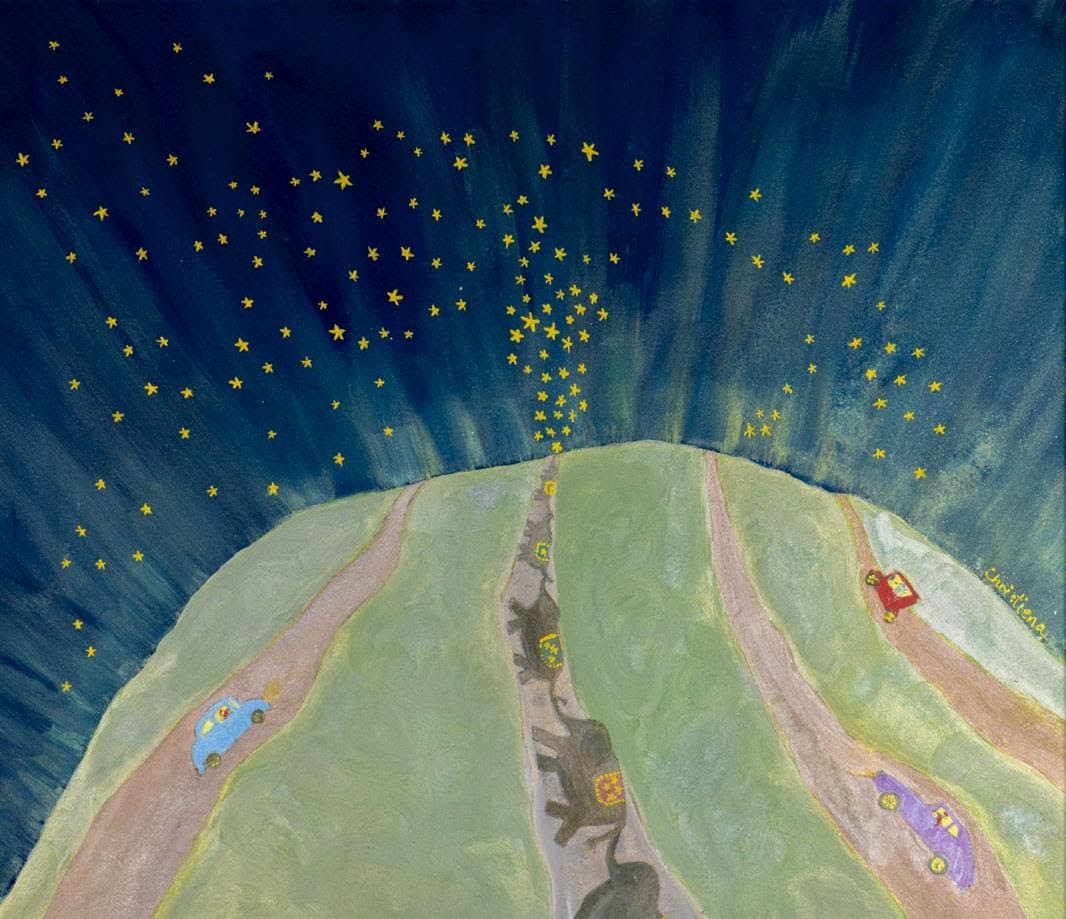
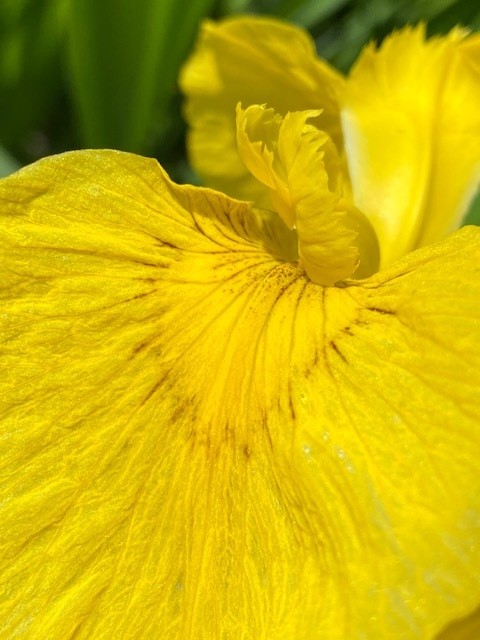
 RSS Feed
RSS Feed
